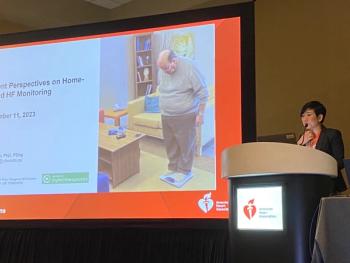
BridgeBio Submits FDA Application for Heart Failure Drug Acoramidis
Acoramidis is an oral small molecule to treat patients with transthyretin amyloid cardiomyopathy.
BridgeBio Pharma has
Acoramidis is an oral small molecule stabilizer of transthyretin. It was designed to mimic the protective effects of T119M mutation, which has been associated with reduced risk of vascular events.
The application was based on
In the study, acoramidis met the primary endpoint, which included an analysis of all-cause mortality, then frequency of cardiovascular-related hospitalization, change from baseline in natriuretic peptide test and change from baseline in 6-minute walk distance.
The trial used the
In the trial, acoramidis achieved an 81% on survival rate compared with 74% survival rate for patients taking placebo. absolute risk reduction was 6.43% and the relative risk reduction was 25%. In terms of frequency of cardiovascular-related hospitalization, acoramidis achieved a relative risk reduction of 50%.
Additionally, acoramidis consistently led to a statistically significant treatment effect at 30 months across additional measured markers of morbidity, quality of life, and function. onally, among subjects on acoramidis that completed a Month 30 visit, 45% of subjects improved from baseline in NT-proBNP, 40% of subjects improved from baseline in 6MWD, and 13% of subjects in improved from baseline in New York Heart Association (NYHA) classification.
In the study, 37.3% of patients taking acoramidis experienced serious adverse events, and 5% of patients treated with acoramidis experienced treatment related serious adverse events that led to discontinuation
BridgeBio also presented
The totality of the evidence points to the potential to provide important clinical benefits over current therapeutic options for patients living with ATTR-CM, Jonathan Fox, M.D., Ph.D., president and chief medical officer of BridgeBio Cardiorenal.
Newsletter
Get the latest industry news, event updates, and more from Managed healthcare Executive.























